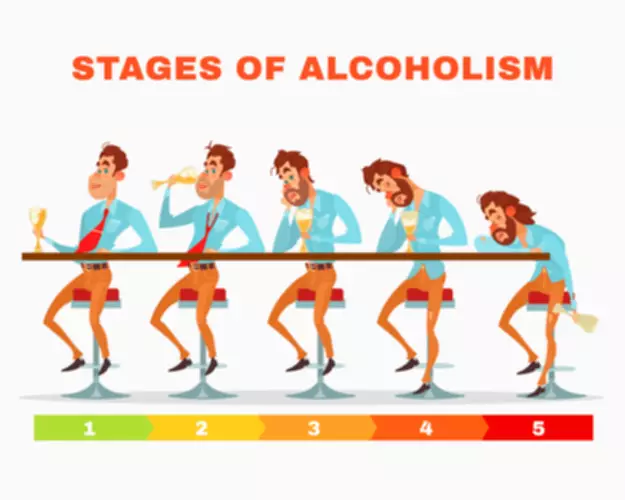Recovery from Addiction

For most people, alcohol withdrawal symptoms will begin to subside after 72 hours. If you are still experiencing withdrawal symptoms after three days, talk to your healthcare provider. This stage of change can present new challenges as a person navigates life after treatment or without the regular support they may have had previously.
The Stages of Alcohol Recovery: Ultimate Guide
Each stage serves a specific purpose and builds upon the previous one, creating a solid foundation for lasting change. In addition, self-care is a vital foundation for a healthy new identity. At the very least, self-care should include sleep hygiene, good nutrition, and physical activity. stages of alcoholic recovery Sleep is essential for shoring up impulse control and fostering good decision-making. Another vital element of care during recovery is relapse prevention—learning specific strategies for dealing with cravings, stress, setbacks, difficult situations, and other predictable challenges.
You May Feel Happier
Treatment varies depending on the type of substance, the presence of co-occurring mental disorders and other personal factors. It’s important to explore your options and choose treatment that addresses your individual needs. Choosing to enter treatment or begin any kind of substance abuse recovery program can be scary, but it is an important step in changing one’s life.

Stages of Alcohol and Drug Rehab Recovery
This episode of The Verywell Mind Podcast, featuring multi-platinum award-winning singer Bryan Abrams, shares his sobriety journey and how he found a treatment that actually worked. Individuals should be prepared to be uncomfortable during this period and have medical help available if needed. This is the period in which delirium tremens is most likely to occur, which requires immediate medical attention. If you or someone you know shows signs of delirium tremens, go to the emergency room immediately. Alcohol can cause problems in relationships, such as conflicts, communication problems, and trust issues.

It’s important for individuals in recovery to identify their specific triggers and develop a personalized toolkit of coping mechanisms. In this article, we’ll explore the various stages https://ecosoberhouse.com/ of the Jellinek Curve. Whether you’re seeking to identify your current stage or gain a deeper understanding of the recovery process, this will clarify the complexities of addiction.
- Even so, they aren’t quite ready to take the necessary steps to change their behaviors.
- Vivitrol (naltrexone), Campral (acamprosate), and Antabuse (disulfiram) have been FDA-approved to treat alcohol use disorder.
- Clinical evidence suggests that the most common causes of relapse during this stage are neglecting self-care or not attending self-help groups.
- However, it is essential to confront these feelings and understand that alcohol has become a problem in their lives.

In this stage, individuals begin to recognize and acknowledge that their alcohol use has become a problem. They may experience negative consequences as a result of their drinking, such as strained relationships, declining physical health, or difficulties at work or school. It is during this phase that individuals may start to question their drinking habits and the impact it has on their lives. There are companies large and small that have recovery-friendly hiring practices. In addition, there are nonprofit organizations such as American in Recovery and the National HIRE Network that specifically help those with addiction or criminal history to find work.
- Shift perspective to see relapse and other “failures” as opportunities to learn.
- If you are thinking about quitting drinking, talk to your healthcare provider.
- • Meaning and purpose—finding and developing a new sense of purpose, which can come from many sources.
- Only 1.0 percent of people receive substance abuse treatment as an inpatient or outpatient at a specialty facility.
- Because alcohol withdrawal can be life-threatening, detoxing in a medically managed environment is advisable.
For example, the detoxification process can cause severe physical effects if not approached in the right way. It’s important for people to have an idea of what they’ll be experiencing during treatment. Another one of the most important ways to support recovery is to understand that multiple relapses over a number of years are typically part of the process.
What are The 6 Stages of Alcohol Recovery

They are not occasion for blame or despair but for encouraging resumption of recovery. Families can develop awareness of a loved one’s emotional, environmental, and social triggers of substance use and manage those. Studies show that families that participate in treatment programs increase the likelihood of a loved one staying in treatment and maintaining gains.
Acceptance also means acknowledging the potential consequences of continued alcohol abuse, such as worsening health, damaged relationships, and legal or financial troubles. It involves embracing the fact that seeking help and embarking on the journey to sobriety is the best course of action. The first step towards recovery is recognizing that there is a problem and acknowledging the need for change.
